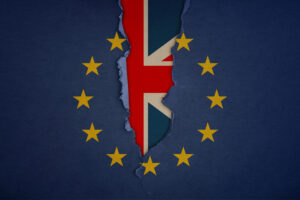
The new framework provides an additional route for personal data transfers from the EEA to the US.
By Robert Blamires, Gail E. Crawford, James Lloyd, Clayton Northouse, Alice Brunning, Alexander Ford-Cox, and Jennifer Howes
On 10 July 2023, the European Commission (EC) took the final step to enable businesses to start relying on the new EU-US Data Privacy Framework (DPF) for transfers of data from the European Economic Area (EEA) to the US. The EC adopted an adequacy decision following the fulfilment by the US of its implementation commitments under the DPF. The adequacy decision enables organisations to transfer personal data from the EEA to organisations in the US that have self-certified under the DPF with immediate effect. As of 10 July 2023, organisations that were certified under the EU-US Privacy Shield (Privacy Shield) are now certified under the DPF and can begin receiving data from the EEA via the DPF.

 The United Arab Emirates (UAE) has issued its first federal data protection law (Federal Decree Law No. 45/2021 on the Protection of Personal Data) (the Data Protection Law), alongside a law establishing the new UAE Data Office (Federal Decree Law No. 44/2021 on Establishing the UAE Data Office).
The United Arab Emirates (UAE) has issued its first federal data protection law (Federal Decree Law No. 45/2021 on the Protection of Personal Data) (the Data Protection Law), alongside a law establishing the new UAE Data Office (Federal Decree Law No. 44/2021 on Establishing the UAE Data Office). On August 20, 2021, the Standing Committee of the National People’s Congress adopted the Personal Information Protection Law of the People’s Republic of China (PIPL), the first legislation dedicated to protecting personal information in China. PIPL will take effect on November 1, 2021. PIPL previously
On August 20, 2021, the Standing Committee of the National People’s Congress adopted the Personal Information Protection Law of the People’s Republic of China (PIPL), the first legislation dedicated to protecting personal information in China. PIPL will take effect on November 1, 2021. PIPL previously
 The end of the Brexit transition period on 31 December 2020 will have several data protection consequences. The impact of one of the more significant implications — the UK becoming a third country for the purposes of EU-to-UK personal data transfers — has been mitigated by a four to six-month grace period in the
The end of the Brexit transition period on 31 December 2020 will have several data protection consequences. The impact of one of the more significant implications — the UK becoming a third country for the purposes of EU-to-UK personal data transfers — has been mitigated by a four to six-month grace period in the  On 12 November 2020, the European Commission (the Commission) published a
On 12 November 2020, the European Commission (the Commission) published a  On 10 November, the European Data Protection Board (EDPB) released its much anticipated
On 10 November, the European Data Protection Board (EDPB) released its much anticipated  On 8 September 2020, the Swiss data protection authority, Adrian Lobsiger (the Federal Data Protection and Information Commissioner, FDPIC), concluded in his annual review that the Swiss-US Privacy Shield does not provide an adequate level of protection for personal data transfer from Switzerland to the US pursuant to the Swiss Federal Act on Data Protection (FADP). Mirroring the Court of Justice in the European Union’s (CJEU’s) findings in the recent Schrems II decision, the FDPIC also concludes that the standard contractual clauses (SCCs), and binding corporate rules (BCRs) (as applied in Switzerland), may not provide for adequate protection for transfers to the US or other third countries.
On 8 September 2020, the Swiss data protection authority, Adrian Lobsiger (the Federal Data Protection and Information Commissioner, FDPIC), concluded in his annual review that the Swiss-US Privacy Shield does not provide an adequate level of protection for personal data transfer from Switzerland to the US pursuant to the Swiss Federal Act on Data Protection (FADP). Mirroring the Court of Justice in the European Union’s (CJEU’s) findings in the recent Schrems II decision, the FDPIC also concludes that the standard contractual clauses (SCCs), and binding corporate rules (BCRs) (as applied in Switzerland), may not provide for adequate protection for transfers to the US or other third countries. On 16 July 2020, the Court of Justice of the European Union (CJEU) invalidated the EU-US Privacy Shield, one of the key mechanisms for lawfully transferring personal data from the European Union to the United States. At the same time, the CJEU ruled that the standard contractual clauses (Model Clauses) remain valid but can only be used under strict conditions.
On 16 July 2020, the Court of Justice of the European Union (CJEU) invalidated the EU-US Privacy Shield, one of the key mechanisms for lawfully transferring personal data from the European Union to the United States. At the same time, the CJEU ruled that the standard contractual clauses (Model Clauses) remain valid but can only be used under strict conditions.